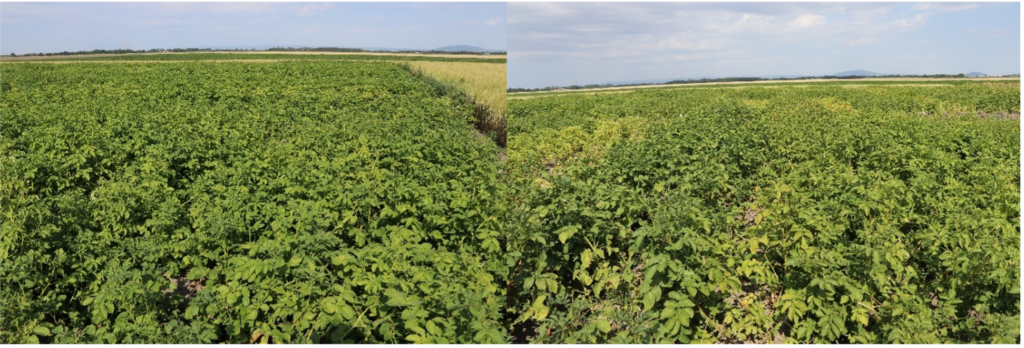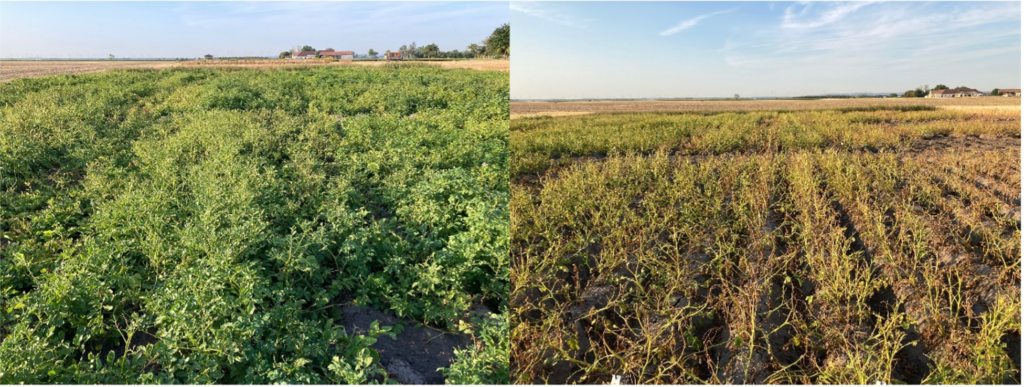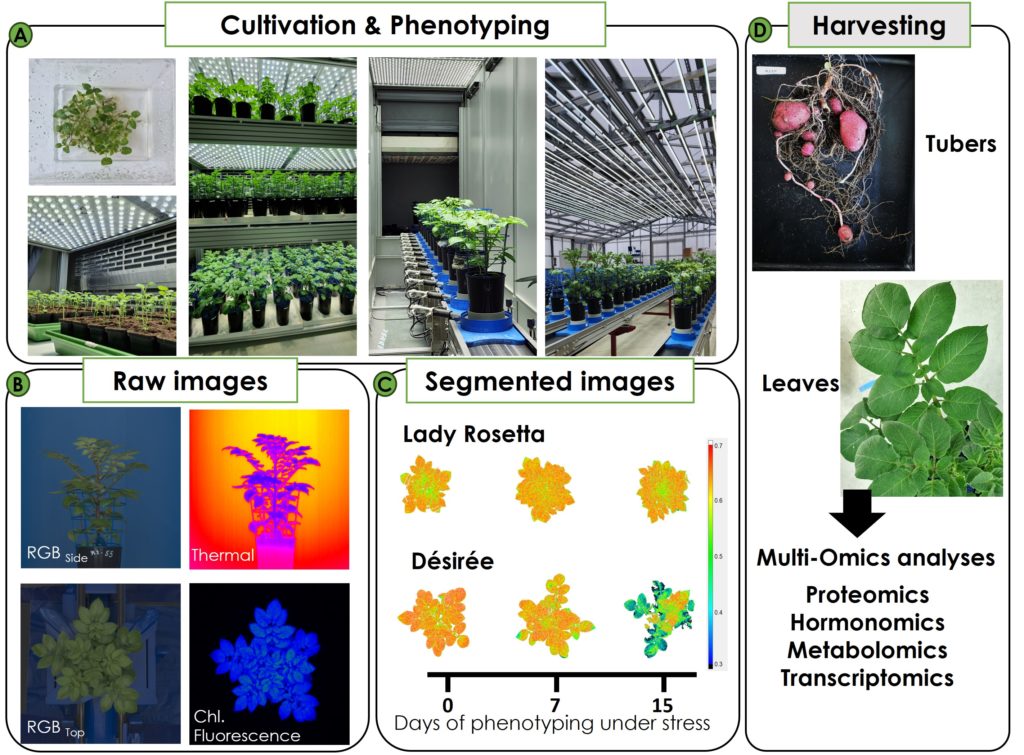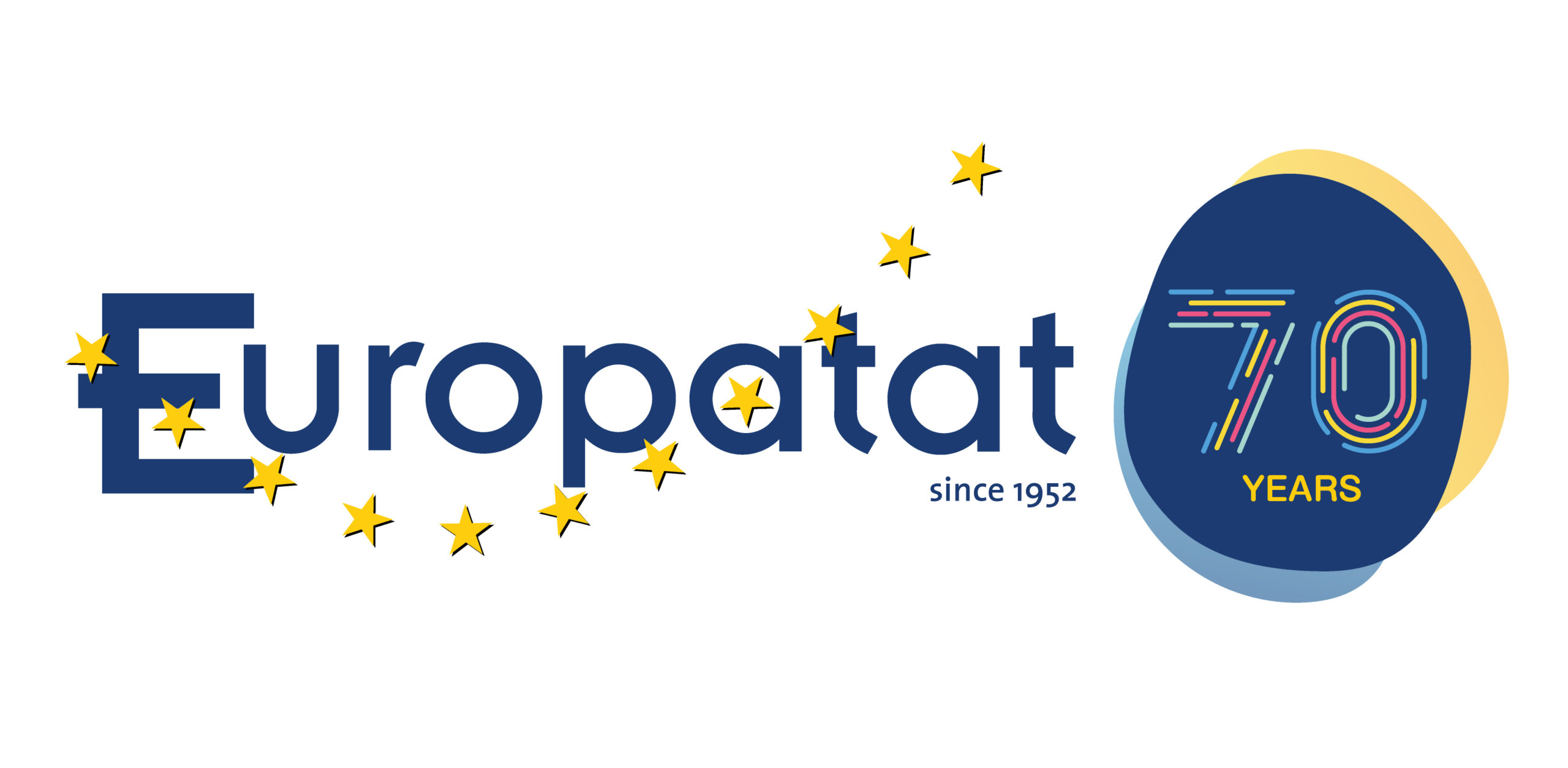The Horizon 2020 EU project Accelerated Development of multiple-stress tolerAnt PoTato (ADAPT), in which Europatat is participating, aims to understand the signalling pathways for single and combined abiotic stresses to the selection of potato cultivars more resilient to climate change. The project is entering its very final phase and will finish in summer 2024.
In the past years, the ADAPT project performed several rounds of stress phenotyping of different potato varieties with the ultimate aim to identify molecular markers and easily scorable phenotypes for stress resilience in potato. To this end, 54 potato varieties were tested in different field trials in Spain, the Netherlands, and Serbia. The trial sites were specifically selected for challenging growth conditions and were either characterized by strong heat stress, drought or in many cases also combinations of these stresses. The selected potato varieties were based on many years of previous experience of the breeders and project partners and covered known tolerant as well sensitive varieties. Furthermore, a set of 16 selected varieties was tested in Austria under conventional and organic conditions.
The beginning of the year 2023 was characterised by rather wet and cold conditions at all trial sites, in June and July, the growth conditions became very challenging at most places due to the heat waves, which were for instance in Austria also accompanied by drought. Therefore, these trials are very valuable for the project and allow to test for a good reproducibility of the obtained data over the years and also from different locations. For each trial in Serbia and The Netherlands, six independent UAV flights were conducted using RGB, thermal and multispectral imaging equipment, a total of 12 flights. The change of the trial site from Spain to Serbia required also an adjustment in the sampling. This was now done by the NIB team in Ljubljana, who were most closely located to the trial site.
As an example, here the results obtained at the Austrian trial site Fuchsenbigl (Marchfeld, close to Vienna) are shown, where heat and drought stress occurred late (end of June) but severely, as can be seen in the comparison of the irrigated and non-irrigated fields.
21.07.2022
FUC1 – irrigated FUC2 – non-irrigated

18.07.2023
FUC1 – irrigated FUC2 – non-irrigated

Figure 1: Overview pictures of the two potato variety trials in 2286 Fuchsenbigl (FUC), Austria: left FUC1, irrigated; right FUC2, non‐irrigated. Pictures were taken on 21.07.2022 (upper panel) and 18.07.2023 (lower panel).
As also done in the previous years, samples were taken during the growth season, particularly at the occurrence of heat and drought stress.

Figure 2: Different technological approaches to identify relevant characteristics associated with responses of potato to abiotic stress factors in the Austrian field trials: (A) Drone flights, (B) Environmental sensors, (C) Evaluation of tuberization, (D) Sprinkler irrigation, (E) Leaf sampling for RNA and metabolomic analyses.
In addition to these studies, controlled glass house studies were performed at a large scale at the PSI research centre close to Brno in Czechia as well as smaller studies focussed on heat stress at the Universities of Erlangen (Germany) and Wageningen (Netherlands), or focussed on waterlogging at the Utrecht University (Netherlands). Based on the results obtained from all trials, the two varieties Désirée and Lady Rosetta were chosen for a second round of high-throughput phenotyping (HTP) at PSI in 2023. These experiments revealed that these varieties responded with clear differences to the applied stresses, which did confirm the observations from the field and most importantly also from many potato growers, who were consulted by ADAPT.

Figure 3: Overview of the phenotyping experiment at PSI research center: (A) Growing plants under controlled conditions in walk-in chambers and Phenotyping plants using PSI Modular PlantscreenTM system, (B) Capture plants using multi-imaging sensors for phenomics analysis including morphological and physiological assessment, (C) Automatic image segmentation showing the effect of triple stresses (Heat + Drought + Waterlogging) from Chlorophyll fluorescence imaging in two potato cultivars at different phenotyping days, and (D) Harvesting the tubers for yield assessment and leaves for multi-omics analyses.
In the glass house experiments the sampling was done at high density intervals to get insights into the process of stress acclimation. These samples have now been distributed to the Universities of Olomouc (Czechia) for the analysis of plant hormones, Erlangen (Germany) for metabolite (amino acids and sugars), Vienna (Austria) for proteomics, and the NIB in Ljubljana (Slovenia) for analysis of gene expression. Phenotypic- and physiological analysis did already reveal the different modes of stress acclimation, visible at the reduction in the photosynthetic efficiency with an increase in the canopy temperature….
For deeper insights into the molecular strategies of stress acclimation, an analysis pipeline for such large and highly complex data sets was developed at the NIB. Application of statistics combined with modelling of stress response pathways from known data helps to identify important regulatory networks and will path the way to develop future markers for breeding from those.
For more information about the project and the latest news, please visit our website at adapt.univie.ac.at or follow us on Twitter @eu_adapt.

